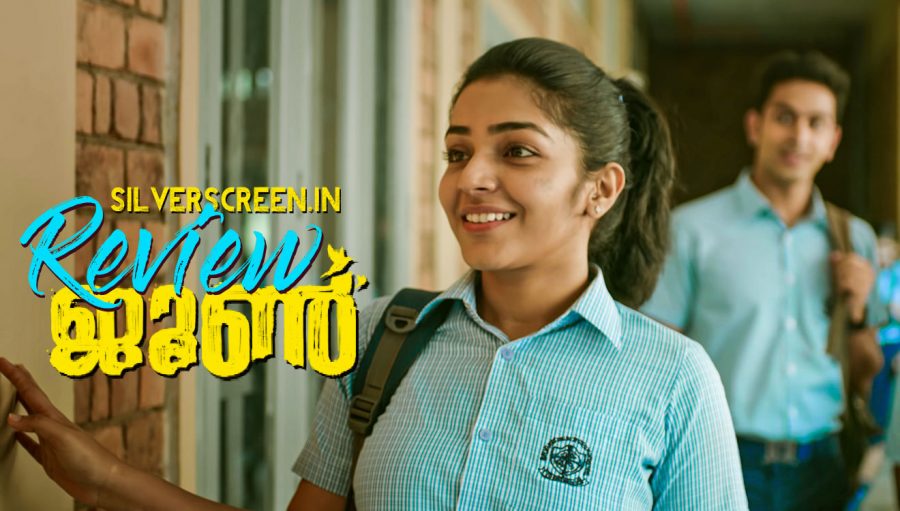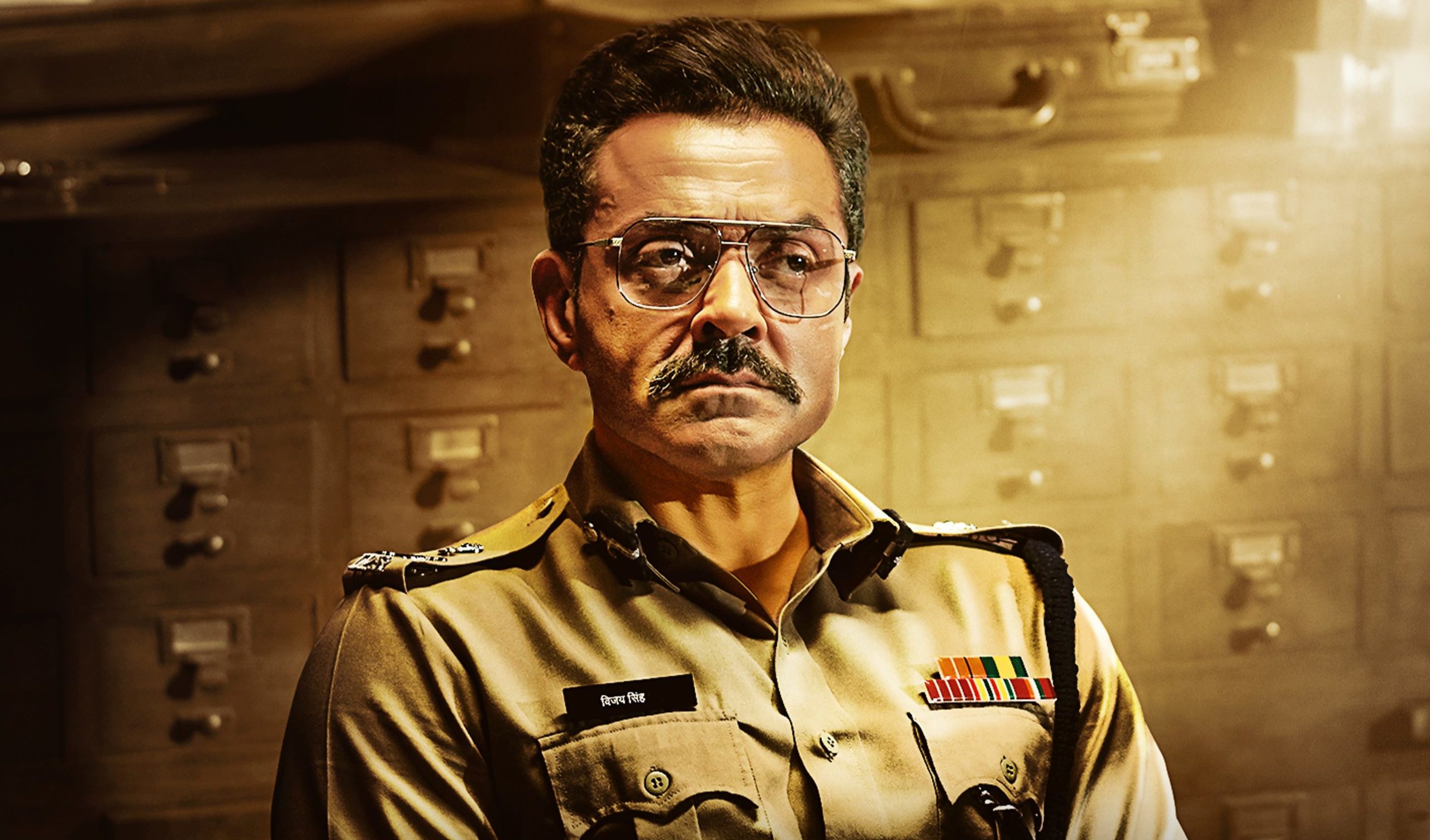Director: Ahammed Khabeer
Cast: Rajisha Vijayan, Sarjano Khalid, Aswathy Menon, Joju George
Composer: Ifthi
Debutant director Ahammed Khabeer’s June follows its titular protagonist (Rajisha Vijayan) as she goes from a wide-eyed teenager to an adult on her wedding day. The drama invests most of its time in June’s high-school days, which unfold in a flashback sequence. You meet her classmates, watch the great time they have together and the promises they make as they part ways. In the climactic sequence, Khabeer juxtaposes the adults against their teenage selves, and attempts to stress upon the fleeting, unpredictable quality of life.
The initial parts of June have a female gaze that soon fades away. It is through sixteen-year-old June’s perspective that we see Noel (Sarjano Khalid), the ‘fair and lovely’ boy from a rich household who comes to school in a posh car that is a rarity in her village. His face has a glow that is usually devoted to heroine-introduction shots. There are at least three different instances where you see June during her daily journey home on a canoe (her mother scolds her for never taking the bridge). These moments might seem insignificant, but they show June in her happiest state, embodying the pureness of her age. The high-school sequences, shot as slice-of-life moments, will be relateable for most of the audience. They focus on ordinary things like choosing a class leader or preparing for a youth festival that might not mean much in hindsight, but matter so much in that moment. The scenes have the aesthetics of a Friendship Day card, shot to look pretty and evoke nostalgia.
But this impression too, wears off rather quickly. The director obsesses with the gentle feel-good moments and refuses to dive deep down into the teenagers’ lives. He doesn’t explore their angst or aspirations, or the conflicts they get entangled in. June doesn’t undergo a memorable personal evolution.
Worse, the scenes from her adulthood infantilise her. June, in her mid-twenties, makes a solo trip to a beach town on New Year’s Eve. She downs two bottles of beer, befriends a bar-tender, and when a foreign tourist on the beach complains of being sexually harassed, she chases the harassers down the street. On paper, this sequence might sound great, but on screen, it has a cringey tone that laughs at an adult who cannot handle alcohol or a solo vacation. The incident of sexual harassment never gets another mention, but is used as a trigger to the chase scene and the subsequent police station sequence which are shot entirely from a male perspective that likes to see June as a child. She wins over everyone, including the police inspector, with her cherubic act of crying aloud and cribbing about her life. In a later scene, an old acquaintance takes her to his favourite eatery where he teases her by not ordering food for her. She pulls a puppy face, and awkwardly prods him to buy her food. Why a fully-grown adult cannot do things on her own is a question the film keeps sweeping under the carpet. June goes from having a refreshing female gaze to one that is exasperatingly male.
What June doesn’t show makes more impact than what it actually does. The narrative is marred by gaps that the film is too lazy to fill. June’s big shift from teenage to adulthood is reduced to a one-dimensional song sequence where you see her pining after a lost love. How does this phase change her outlook on life and relationships? Almost never do you see her interacting with the new surroundings of college – instead, the film tosses in passing shots of men trying to date her, as though she’s defined by her attractiveness. The heartbreak puts her in distress, but we do not see how she springs back to her feet. Her best friend (Vaishnavi Venugopal, who has a stunning screen-presence) is reduced to a prop and not an active character who contributes to the course of the narrative.
This could also be the most ‘middle-class friendly’ coming-of-age movie ever. June falls in love twice, once with Noel, and at the end, with a guy her parents choose for her. Both these relationships are well within her ‘safe zone’, and don’t put her social status in jeopardy. In a pivotal scene in the first half, June threatens to break the ‘moral code’ of the family by going on an outing with classmates without seeking the consent of parents. The mother creates a fuss. June weeps. But the film is least bothered with how this affects the mother-daughter relationship. Never does June question if she was really in the wrong. There is no significant thought-provoking scene that looks into the under-layers of the parents’ relationship with their daughter. June treads an easy route to a happy ending, by-passing all the potholes.
In spite of having a female protagonist, the film suffers from a myopic vision of feminism. June’s mother is as good as non-existent. She is the bickering presence in the house who can’t seem to be happy with anything that her daughter does. The film shows no interest in exploring her personality (the father, played by Joju George, gets it), and reduces her to a stereotype.
Rajisha Vijayan delivers a mighty performance in the lead role, perfecting the character to its nuances. The arduous physical transformation that this young actress underwent to play the teenager is something Malayalam cinema has rarely seen. The horde of young actors who play her classmates are impressive and perfectly at ease in front of the camera. Thanks to them, the initial half of the film is a delightful watch. It also has a robust technical side – especially the soundtrack composed by Ifthi, mostly comprising melodies that can give you a hangover.
Recommended
The criticism notwithstanding, Khabeer is a director to watch out for. The film has moments that glow in their honesty and subtlety, like the scene where a phone in June’s household goes missing, or the part where she meets Anand’s (Arjun Ashokan) mother. The fundamental problem with June is its blind aspiration to stay pretty and appease everyone which, incidentally, is the pressure that society exerts on women. This is a film that could have been more, but falls flat due to its reluctance to flutter its wings.
*****
The June review is a Silverscreen original article. It was not paid for or commissioned by anyone associated with the movie. Silverscreen.in and its writers do not have any commercial relationship with movies that are reviewed on the site.



